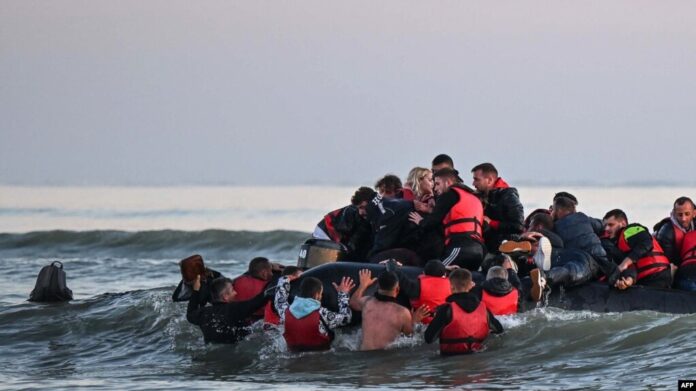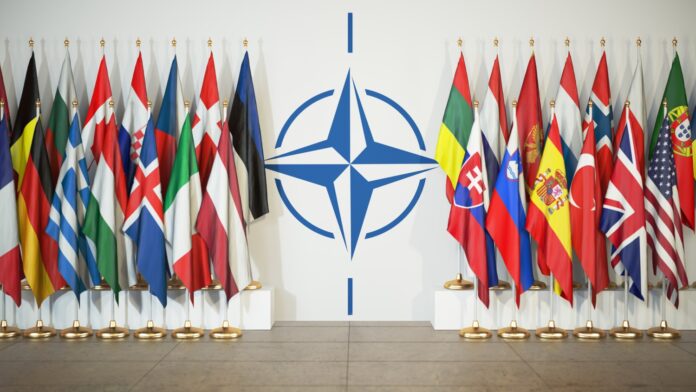Regarding the Compact Case
Imagine, in the early hours of the morning, masked TEK officers knock on, say, Richard Stock’s door, holding a search warrant issued by Interior Minister Pintér. Stock quickly tries to throw something on over his pajamas or bare body, while the TEK officers force their way into his apartment, searching everything despite his protests. They scatter books, papers, and files on the floor, looking for evidence because the CEO of Klubrádió and his team are accused of spreading far-left propaganda, hate speech, and revolutionary pamphlets. The raid is extensive, with nearly four hundred people deployed, confiscating studio equipment, computers, technical devices, and cash, freezing Klubrádió’s bank account, and immediately banning the opposition’s influential radio station once they find the evidence. Pintér informs only the NER-aligned press about the raid in time, with cameras clicking and reports being prepared so that by the time the Hungarian people wake up from their peaceful sleep, they hear and see what the treacherous opposition was up to. But thanks to the vigilance of the Ministry of the Interior, the homeland has been saved!
Imagine the reaction of the free and independent Western world to all this. I can already see the newspaper headlines about the Hungarian dictatorship, overreach, the government’s anti-democratic attempts, and the trampling of the rule of law. I hear the moral outrage in a lecturing tone. The European Parliament would hold a debate on the violence against the free Hungarian press, and another Article 7 procedure would be launched.
I have described a real case, every element of it is true, except the location and the characters need to be changed. Two weeks ago, a large-scale raid was ordered by the German Federal Minister of the Interior at the homes of the editor-in-chief of the German opposition Compact Magazine and several of its staff, as well as at the magazine’s headquarters. They acted exactly as described above. As a result of the search, the print and online versions of Compact were immediately banned, and even its online shows and interviews, such as the conversation with the Russian Foreign Ministry spokesperson Maria Zakharova recorded the Saturday before the Tuesday raid. In the hour-and-a-half-long podcast, Zakharova said interesting things, for example, that gas is not arriving in Germany because the Americans forbade it and, just to be sure, blew up the pipeline. Such things must not be said in Germany. According to rumors, on Monday morning, a crisis team met at the Ministry of the Interior (they do not work on weekends) and prepared a 90-page script titled “How to Get Rid of the Dangerous Compact.”
Compact had long been referred to in politics and pro-government media as a mouthpiece for the far-right populist party AfD and the anti-Islam Pegida movement. Due to its content, filled with revisionist, anti-Semitic, anti-immigration, and conspiracy theories, Compact was classified as far-right by the Office for the Protection of the Constitution, its staff were monitored with spy software, and information was gathered about them using intelligence tools. It was discovered that the magazine is “a platform for enemies of democracy, those who want to destroy the liberal German society.” It also became untenable that more and more people were reading and watching its media products, and its influence in society was growing. Condemning and stigmatizing labels began to multiply around them, becoming constant descriptors, without which it was impossible to talk about Compact. Its readers were also stigmatized because the fish rots from the head. I would add that Compact was a populist magazine, aiming to reach the masses with its writings, not the more discerning right-wing readers.
According to the federal Ministry of the Interior, which banned Compact, the magazine violates the free democratic basic order and human dignity. It acts in an “aggressive and militant” manner, calling Germany a vaccination dictatorship since the covid pandemic, inciting hatred against migrants, and recently spreading pro-Russian propaganda.
Only once before, in 1962, had a newspaper been banned in Germany. At that time, Der Spiegel reported that the German army’s equipment made it unfit to defend the country and criticized Defense Minister Franz Joseph Strauss. Although this fact was established by NATO during an exercise, it was classified information. The article was deemed treasonous, and Der Spiegel was immediately banned. Back then, social solidarity and democracy were still functioning, and other newspapers offered their own work tools to Der Spiegel to replace the confiscated ones. The brutal intervention in press freedom triggered a government crisis, costing Strauss and two other state secretaries their positions.
Today, some have called for the resignation of Interior Minister Nancy Fraser, at least those who dare to demand anything. Experienced journalists know what questions can be asked at press conferences, what boundaries must not be crossed, and what topics are better avoided for their own good. They know that critical journalism in Germany leads to isolation, job loss, bans, arrests, and confiscation of private property. Self-censorship works, journalists ask predictable questions that do not go beyond the boundaries within which public discourse can move in Germany today. It is not possible to write critically about the war, migration, or the social dangers of gender propaganda. Simply put, having an opinion different from the official one is not allowed.
Despite this, a few brave journalists and constitutional lawyers believe that Nancy Fraser exceeded her competence because, in theory, Germany is a state of law; neither the minister nor the entire government, nor even the Bundestag, can stand above the Basic Law. The fifth chapter of the Basic Law clearly states that everyone has the right to freely express and disseminate their opinions in speech, writing, and pictures. The freedom of all media is guaranteed, and censorship has no place.
Now there is a debate on how to explain the illegal step of the Interior Minister for and against. Constitutional lawyers doubt the legality of the step. According to the AfD and its press, the ban was arbitrary, trampling on freedom of speech and press. Legally, it is irrelevant how anyone, including the minister, judges the content of Compact Magazine. Freedom of expression is a fundamental right and allows political agitation, fighting for another state order, and activities that the Office for the Protection of the Constitution may consider unconstitutional. Left-wing and right-wing radicalism are both permitted, only crimes are not. According to the Interior Minister, Compact did not commit a crime, but its publications propagating the overthrow of the political order could “encourage its media consumers and incite them to act against the constitutional order.”
This is a German domestic issue; the scandal remains within the borders, and no one rushes to Brussels to report the otherwise unpopular German government.
Nevertheless, the editor-in-chief of Compact Magazine has filed a criminal complaint against the Interior Minister and several officials. They are accused of trampling on press freedom and violating official secrecy because only they could have informed the media about the raid. I am curious about the verdict. It will not be rushed, as there will be elections in three eastern German states in September. The ban on Compact carries an implicit threat: this will happen to anyone who supports the (far) right. This is how a democratic rule of law works in Europe today.
The author is a historian
Author: Irén Rab
Translated and edited by Irén Rab




